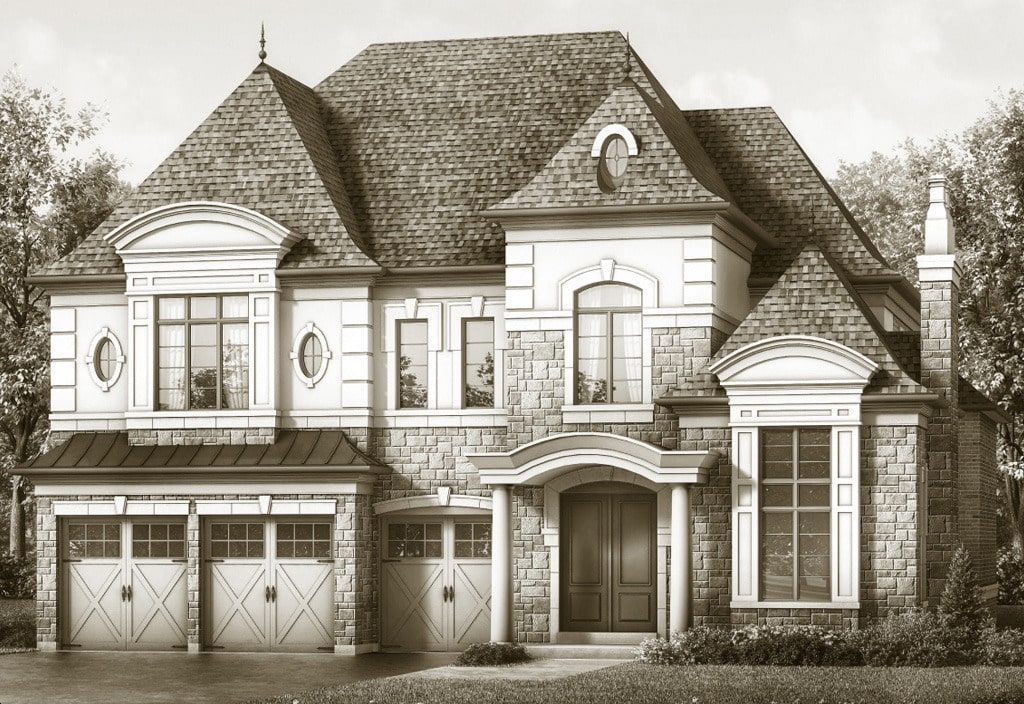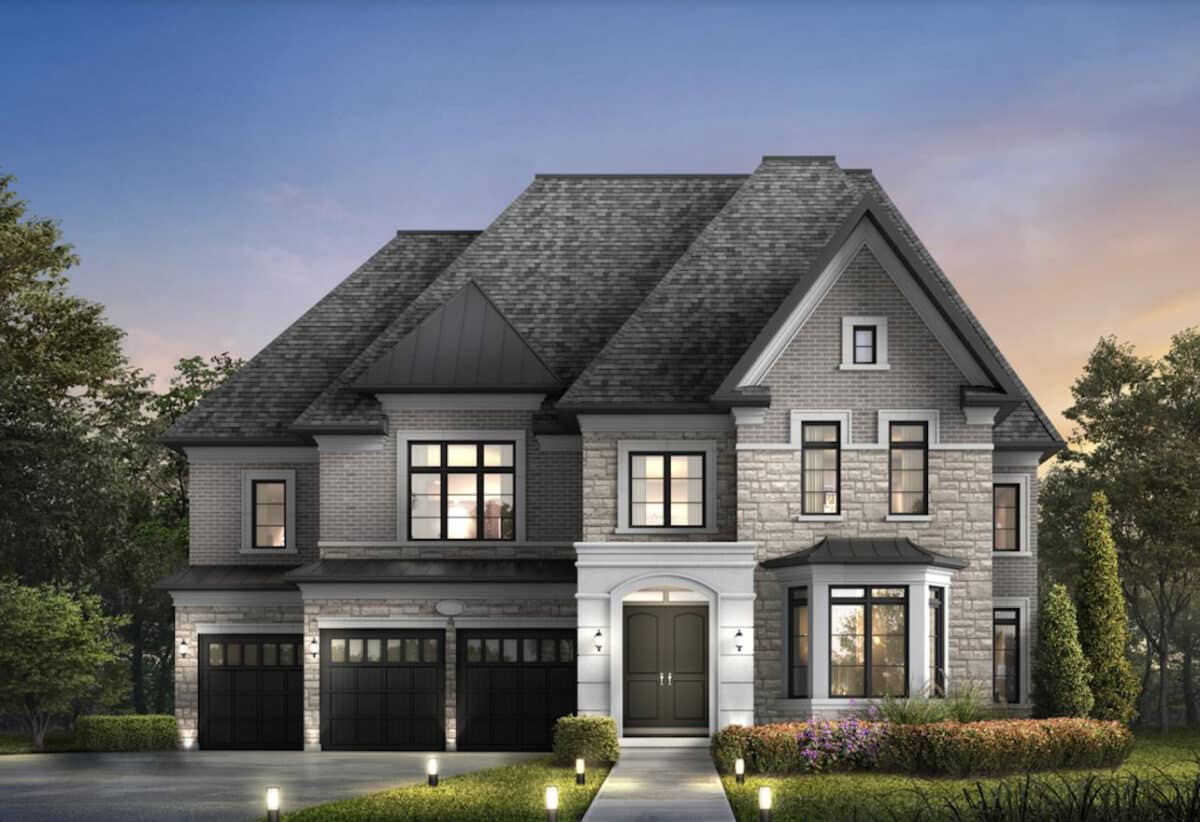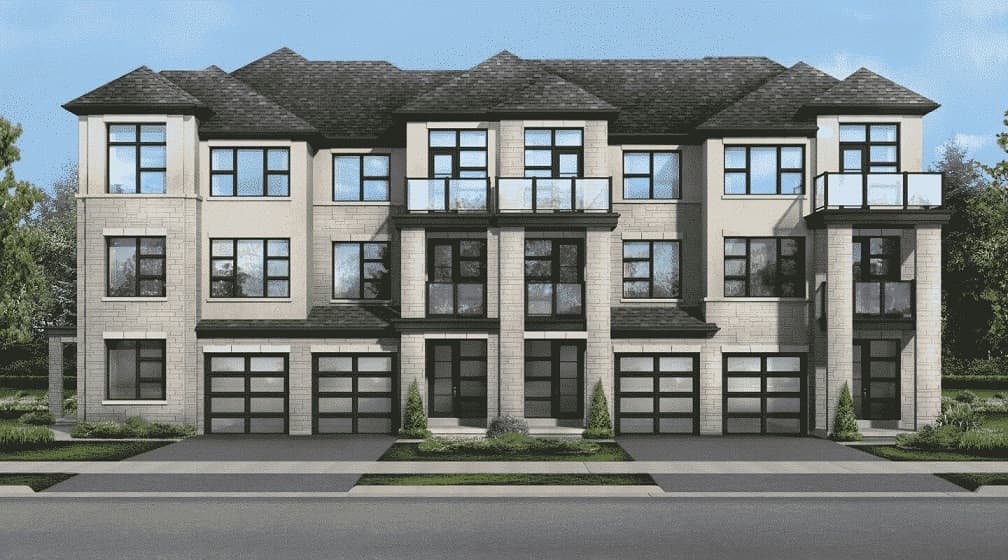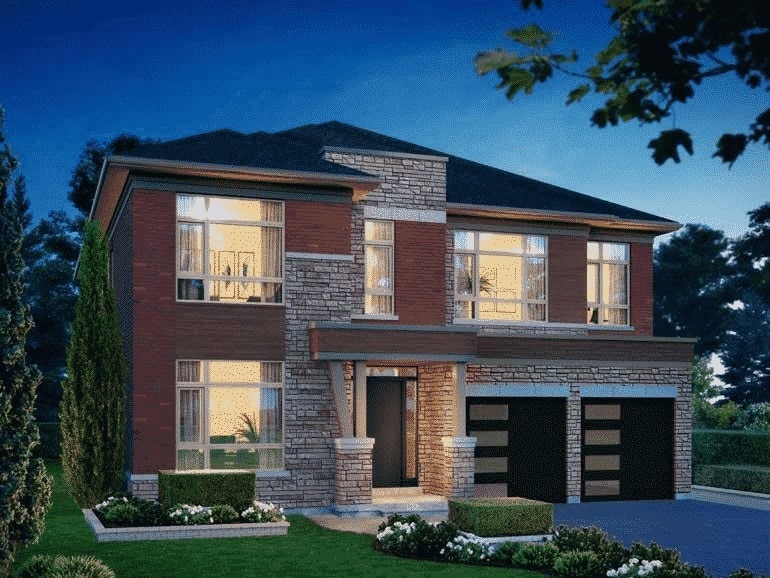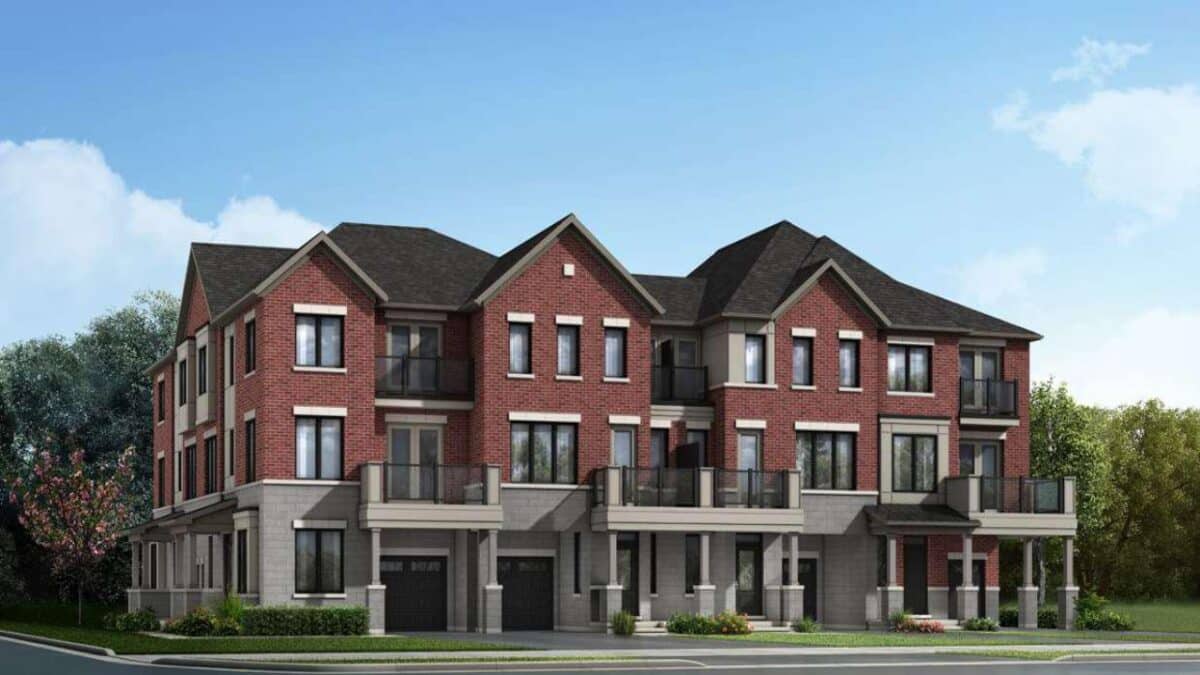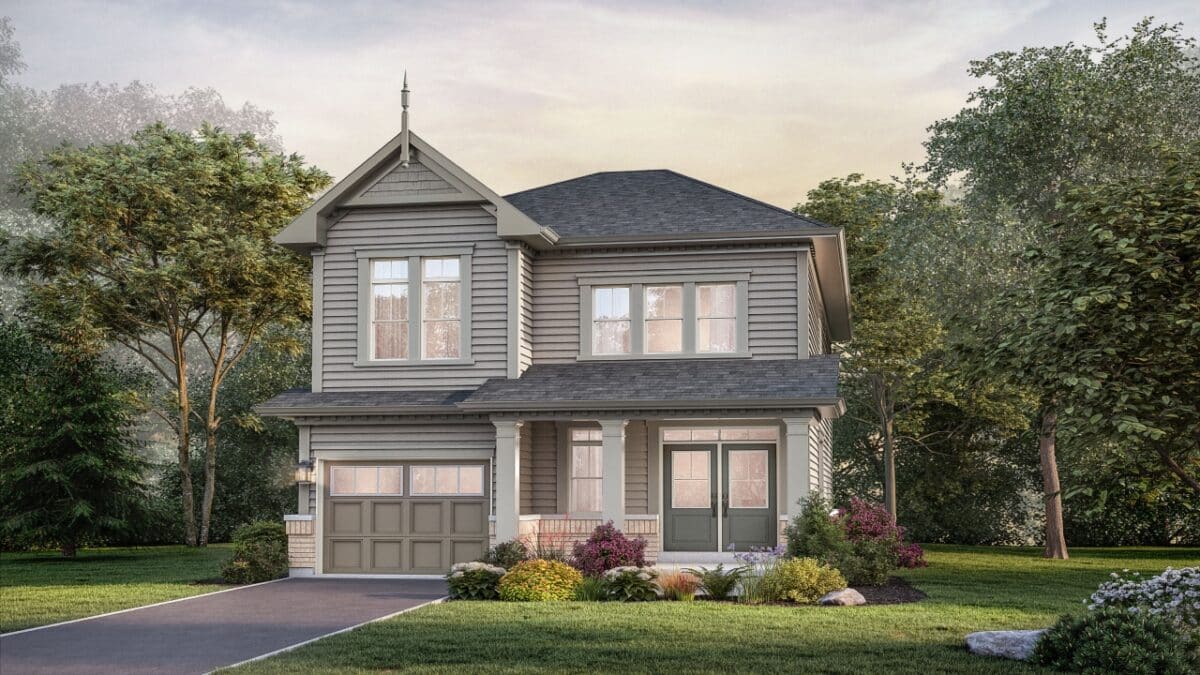List of New Homes in Aurora
-
Bayview Trail Homes
Pricing From Developer Sold Out
10 Archerhill Ct, Aurora, ON
Developer - Treasure Hill Home Corp, Starlane Homes
Occupancy - 2026
View Details -
Allegro Homes
Pricing From $2,519,900
163 Timberline Trail, Aurora, ON
Developer - Geranium Homes
Occupancy - 2026
View Details -
Monteverdi Estates
Pricing From $2,949,990
13759 Yonge St, Aurora, ON
Developer - Ambria Homes
Occupancy - 2025
View Details -
Woodhaven Aurora
Pricing From Developer Sold Out
14222 Yonge St, Aurora, ON
Developer - Ballymore Building Corporation, Brookfield Residential Ontario
Occupancy - 2022
View Details -
Shining Hill Homes
Pricing From $919,990
St John's Sideroad, Aurora, ON
Developer - Regal Crest Homes, Townwood Homes Inc., Country Wide Homes Ltd.
Occupancy - 2022
View Details -
Royal Hill Aurora
Pricing From Developer Sold Out
14029 Yonge Street, Aurora, ON
Developer - Dormer Homes, Lindvest Properties
Occupancy - 2022
View Details
Why invest in Aurora Real Estate?
Aurora is located north of Richmond Hill and south of Newmarket, and Highway 404 runs east of the town. Aurora is located within the Greater Toronto Area in the York Region. Aurora is currently home to more than 60,000 people but is projected to grow to 70,000 by 2031. Aurora is a town located in Southern Ontario that has maintained its small-town atmosphere while growing into a thriving urban center. Despite being a small town, the Ontario Places to Grow Act offers great potential for its development. The area is home to many established neighbourhoods, ranging from bungalows to large homes to new condominium buildings that share space with nearby retail businesses and employment centers. Aurora remains a magnet for businesses, generating employment opportunities and attracting investors. For those who are looking for a home near their workplace, Aurora is a great option. Most new neighbourhoods in the city are composed of townhomes, semis, single-family homes, and condominiums close to amenities like restaurants, retailers, and other services.
Why Buy A New Home in Aurora?
The city has many housing options to accommodate residents at every stage of their life, which is a factor contributing to its large residential population. Many of the newer neighbourhoods are developed to be safe and family-friendly neighbourhoods. Aurora is known for organizing community events to bring residents together, so residents of the town will have plenty of opportunities to connect with their fellow residents. The community organizes many events, including a Home Show with more than 500 vendors and live entertainment, the Easter Egg Hunt, Arctic Adventure, and Street Festivals. There are several popular events for children during the holiday season, including Santa Under the Stars Parade, Family First Night, and Haunted Forest. Aurora is home to many schools, and parents have a wide range of options, from public schools to Catholic schools and even private schools. Aurora is served by the York Region District School Board (YRDSB) and York Catholic District School Board (YCDSB). There are 13 schools in the YRDSB, including ten schools for K-8 and three secondary schools, while there are seven schools in the YCDSB, including six K-8 schools and one high school.
- 1
- 1
- 1
- 1
- 1
- 1
- 1
Employment in Aurora
Many Aurora companies serve some of the York Region’s most thriving sectors, including Information Technology, Financial, Insurance and Accounting Services, Life Sciences, and Advanced Manufacturing. A strategic plan for economic development is currently being implemented by the town. This plan aims to diversify the town’s economy after it achieves its four objectives. The town’s first objective is to target growth sectors and attract new business and investors. As a second objective, the town wants to create a business environment that is competitive and supports existing businesses. Another goal of the plan is to develop Downtown Aurora into an integral part of the city. The city also plans to diversify its economy to support its residents, attract tourists, and maintain its culture and heritage. With new homes in Aurora, you have direct access to Aurora’s booming employment market.
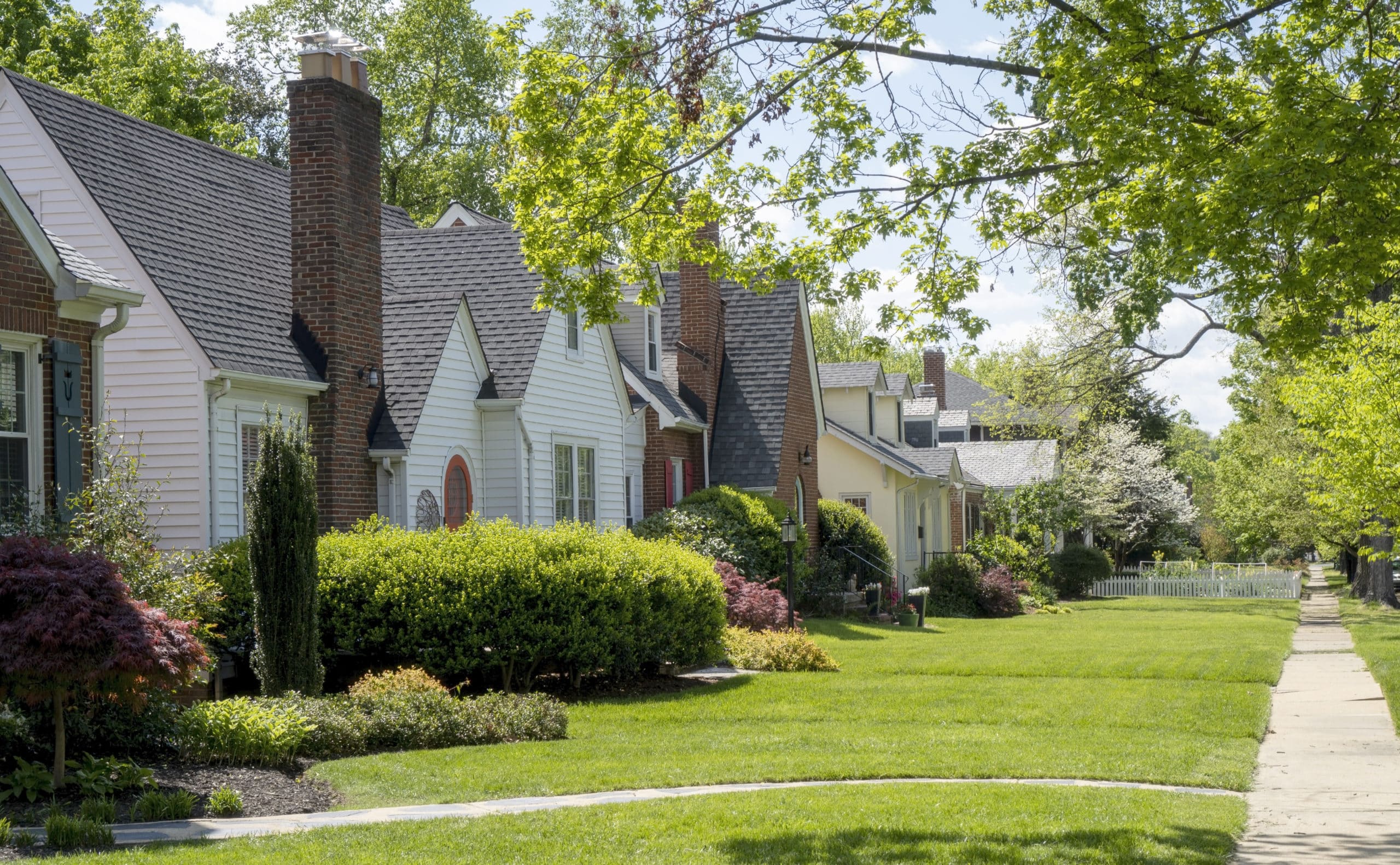
Average Prices of Homes in Aurora
For all types of homes sold in Aurora over the past year, including new homes, the average price was $1,270,841. A detached house in York is on average $1,589,879, while a semi-detached house is on average $1,012,865. A detached home in York Region is less than the average price for all GTA regions, which is $1,415,698. York Region also has a lower price average for semi-detached homes compared to other regions of the Greater Toronto Area, which averages $1,064,361. The average price of a detached home in Aurora for 2021 is $1,481,561, and the average listing day is 17 days. On average, semi-detached homes cost $917,769, with a selling day average of 12 days. Compared with other parts of York, the price of detached and semi-detached homes in Aurora is lower than the average. The benchmark price for single-family detached homes changed by 23.84% from last year to $1,256,800 this year. A benchmark price for attached single-family homes reached $897,100 in the past year, an increase of 22.89%. Purchasing a pre-construction home in Aurora is a smart investment since the region is a hub for many sectors, such as retail, manufacturing, auto parts, and printing. Richmond Hill and Markham are some of the GTA’s tech hubs and can be accessed conveniently in less than 30 minutes. Also nearby is Toronto’s Financial District, which is easy to reach within 40 minutes.
Aurora Lifestyle
As a small town in southern Ontario, Aurora has developed into a flourishing urban area while retaining its small-town charm. Residents of Aurora’s new home developments can take advantage of the town’s many facilities, natural areas, jobs, and schools. There are a multitude of parks surrounding the town, where you will find tennis courts, soccer and basketball fields, and sports fields. There are several other popular trails in the area, such as Wimpey, Willow Farm, and Lakeview. The 57-kilometre park includes trails for everyone from joggers to cyclists to skiers and dog sledders. A popular activity at the Stronach Aurora Recreation Complex is public skating, which is open year-round to residents. There are also four more skating rinks in the city, including Confederation Park, Aurora Family Leisure Complex, Machell Park, Town Park, and Ada Johnson Park. There are numerous amenities in the Aurora Seniors’ Center to keep elderly members of the community engaged, including a billiards room, an outdoor bocce ball court, a computer lab, the Aurora Arboretum’s terrace, and a woodshop. Throughout the years, community building has continued without any signs of decline. With the development of mixed-use developments along Wellington and Yonge streets, the municipality plans to create a pedestrian-friendly, arts- and culturally oriented destination. As part of a new district being developed by Aurora, the Aurora Cultural Centre will host art galleries, museums, and performance venues.
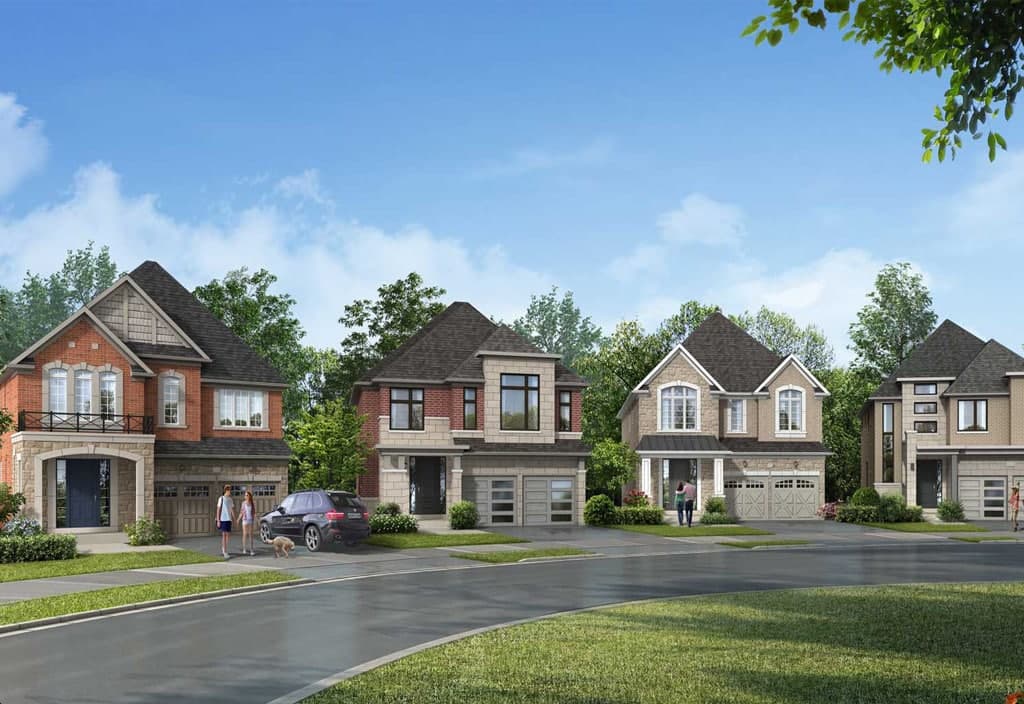

Getting Around in Aurora
There are many public transportation options and quick access to highways, making it easy for people to travel around town. There are several highways and train services in the area that connect residents with other parts of the Greater Toronto Area, including Highway 404 and GO Transit. The York Regional Transit system serves Aurora, with several routes within the city and the Viva Blue Bus Rapid Transit system that connects it to other parts of York. Aurora residents can take the Viva Blue route through the York Region, which runs from Finch GO station to the Newmarket terminal. GO Transit operates in Aurora, and is located along the Barrie line, which allows locals to travel throughout the Greater Toronto Area easily. On weekday mornings during peak hours, trains leave for Toronto every 15-20 minutes. During afternoon peak hours, trains travel to Barrie every 30 minutes. According to GO Transit’s Regional Express Rail Plan, weekend travel between Toronto and Aurora will be improved with trains running at 15 minutes intervals by the year 2024. The Barrie-Toronto route will also see electric trains replacing diesel trains. Purchasing a new home in Aurora is a great option for people who want to live in a suburban area with all the convenience of the urban core. Aurora has made a number of changes to its facilities to make sure that it complies with the Accessibility for Ontarians with Disabilities Act (AODA).



